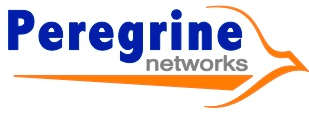2011 will provide New Hampshire with a greater option of accessing wireless services with 4G dominating the industry. 4G (Fourth Generation) is the next generation of wireless wide area networks (think cell phones) that provides faster speeds that are not only comparable, but in some cases, faster then landline options. 4G networks can be looked at in two ways. The first is the mobile 4G which is essentially the network that services our cell phones as well as other devices for users on the go. The second is fixed high-speed wireless services (based on 4G technologies) which provides an alternative to high-speed telecommunications services beyond the traditional methods that have been used in the past.
Mobile Telecommunications
Mobile 4G networks will start making inroads into New Hampshire in 2011 and provide speeds that average 5 to 12 Mbps downstream and 2 to 5 Mbps upstream. For those familiar with the speeds of 3G networks on their smart phones today, a 4G network will be about 4 to 5 times faster. Mobile companies such as T-Mobile, Sprint, Verizon, and AT&T have indicated their plans to provide 4G services in New Hampshire in 2011 with the first implementations occurring in larger markets followed by smaller markets over the following 2 to 3 years. While it is only natural to think of 4G as just an expansion of the current 3G network, since speeds of 4G are now approaching the speeds that we are used to in our offices, most companies will find it worth re-evaluating the cost of owning and operating their present voice and data networks.
From an operational perspective the next generation of wireless networks will provide a more unified Cloud Computing experience. Cloud computing is essentially Internet-based computing, whereby shared resources, software, and information are provided to computers and mobile devices on-demand allowing employees to remain productive whether in the office or on the go. Mobile ecommerce will increase because of the higher consumption availability of web services making it easier for more customers to find, shop and sell right from their mobile devices.
But with these speed increases of the next generation of wireless networks there is still the financial side that needs to be looked at. Businesses will not only need to pay closer attention to usage plans beyond monthly minutes of voice calls, but also in how data usage will impact the bottom line every month. Faster network speeds makes it all too easy to exceed the monthly data limits resulting in unexpected high monthly bills, so it will be important to find those mobile providers who offer flat fees services or demand that your current mobile provider makes usage plans that are better align with a business’s monthly expenses.
Fixed Wireless Telecommunications
Another small, but growing industry in New Hampshire that many are unaware of is the fixed high-speed wireless services market. Fixed high-speed wireless enables New Hampshire companies to access telecommunications services using wireless solutions. The solutions provide an alternative to land-line services with average speeds ranging from 5 to 30 Mbps, but current technologies can provide speeds up to 400Mbps. While not a large industry in New Hampshire, it certainly is a growing industry and provides New Hampshire businesses with other avenues for telecommunications services. Companies such as Peregrine Networks, North Country Internet Access, WiValley, Granite Connection, Radius North Communications and a handful of other fixed wireless service providers have indicated they will continue to expand services throughout New Hampshire in 2011. Essentially these companies are providing telecommunications services to many businesses (and residents) that have no choice, limited choice, or are looking for alternative solutions for their business telecommunications needs.
Benefits of using a fixed wireless solution for telecommunication are:
- New Hampshire Based: The majority of fixed wireless service providers are owned and operated by residents of the state. They generally employ state residents so buying services from these companies helps foster local economic growth.
- Reliability: Unlike landlines that are prone to pole mishaps, down lines, or dug up circuits, wireless services are not affected by any such events. Even weather related events such as the recent wind storm of 2010 and the historic ice storm of 2009 proved out the reliability of wireless connectivity. While many last mile copper and fiber connections were down after these storms, wireless connectivity remained active.
- Inherent Security: Because people were concerned with wireless connectivity right from the start, just about all implementations of fixed wireless systems deploy a wide range of Advanced Encryption Standards (AES) that have been designed to meet the National Institute of Standards and Technology (NIST) Computer Security Division; the same can not be said for cable and copper installations.
In summary there are a number a major wireless developments coming for 2011; major new networks, new wireless smart phones, a plethora of new tablet devices, and new software and services. All of it designed to keep New Hampshire connected with the rest of the world. It will provide New Hampshire businesses with not only a way to further increase their presences online, but also with new avenues for staying in touch with employees and customers they depend on. It is important that New Hampshire companies look at how they can use these new wireless services, what impact these wireless solutions will have on their business, and how wireless devices plays into their business strategy going forward in 2011.
